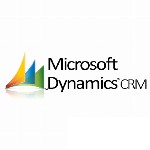| description | none |
| owner | plig@mnc.com |
| URL | git://repo.or.cz/shadwell11.git |
| https://repo.or.cz/shadwell11.git | |
| push URL | ssh://repo.or.cz/shadwell11.git |
| https://repo.or.cz/shadwell11.git (learn more) | |
| bundle info | shadwell11.git downloadable bundles |
| content tags |
Comprehending the distinctiveness between CRM Platforms can benefit consumers make the right selection when it comes to the crunch.
As the number of customers and customer transactions escalate, the organization's capacity to scale existing systems or plan for the migration to larger systems without disrupting business operations becomes critical. Determine which functionality you want to include in your CRM. Your decision should be driven by your objectives, which means you should concentrate on the features that will better suit your business requirements. Some of the most important features of any CRM are dashboards, reports, tasks, contact management, lead management, and mobile access. The best CRMs should integrate natively with a wide range of applications, from marketing software to accounting to ecommerce platforms. In other words, they should have developed their own integrations with popular software options that their target customers are most likely to use. Some CRM vendiors have made CRM capabilities available even to small and mid-sized businesses and have taken much of the anxiety out of implementation, since none is involved. This service is provided on a pay-for-play system, which equates to lower costs than other options.

Pay attention to vendors who have worked with companies and industries which are similar to yours. Also consider the types of CRM solutions this vendor offers. Is it only a niche solution or is it a horizontal solution which can fit all types of businesses? You want a vendor who can match your specific needs and has a solid knowledge in servicing your industry. A long standing jokes is that CRM stands for “Consultants (making) Real Money.” It’s positioned as an arcane black art, something both technical and artistic, and something that you couldn’t possibly understand without their help Managing customer relationships is a complex and ongoing process and a system with Ecommerce Software Reviews will reflect positively on itself.
Customer Relationships As A Business Priority
A good CRM system builds value for your business by opening up vital communication channels and creating a common client-focused knowledge base to better serve your clients. Many companies are creating sophisticated customer relationship management technology without realizing that such sophisticated tools require sophisticated users and that their users will need training. Cost-effectiveness is one of the major advantages of CRM to business. It helps in reducing cost associated with several processes in many ways. Firstly it reduces all the paperwork involved in different processes. All data is stored digitally on the database. Also, it reduces the manual work to be done in businesses. This leads to a decrease in staff requirements for manual work. Integrated CRM systems are complex and require significant time to analyze through companies that specialise in Project Management Software Reviews and the like.
CRM is about understanding who your customers and potential customers are, and nurturing the relationships you have with them. It is also about understanding the needs and behaviors of these people, whilst reacting to them, and adapting as these change. To lead a CRM initiative, executives must explore the available tools and software to determine an appropriate strategy. With direction cascading down from passionate and devoted leaders, the entire organization will align around the effort. Challenges can thereby be mitigated, allowing executives to guide their companies towards greater customer engagement and business success. Relationship marketing can be assisted by purchasing the right system which means making sure the right CRM Software Reviews are in place.
A Phased Approach To CRM
Seeing the upcoming actions for every deal removes the guesswork and stress from a sales rep’s day. CRM is not a software package. It’s not a database. It’s not a call center or a Web site. It’s not a loyalty program, a customer service program, a customer acquisition program, or a win-back program. CRM is an entire philosophy. A CRM program is typically 45 percent dependent on the right executive leadership, 40 percent on project management implementation, and 15 percent on technology. In many companies, product-based management is so entrenched in management culture that the switch to anything different is a significant challenge. More than half of CRM failures have been blamed on the challenges of company politics, inertia, and implementing organizational change - not software and not budgets. In choosing CRM solutions, checking out a site which offers HR Software Reviews is now a pre-requisite.